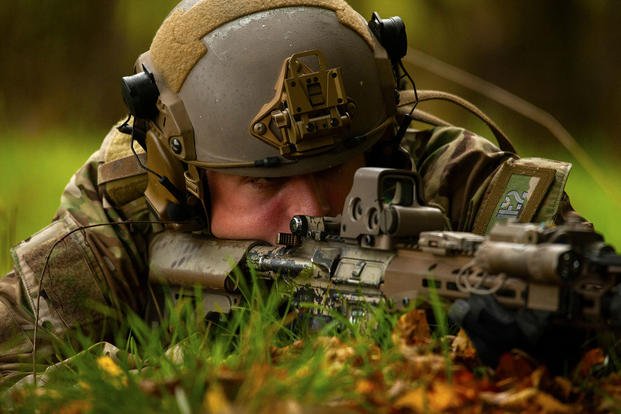The military, police, special ops and firefighters constantly seek to create a foolproof selection program, as well as finding the right entry requirements to test candidates. I recently was asked the following question by a few friends who are either active duty or former tactical professionals (military, special ops, police, SWAT and firefighters):
Do you think there will ever be a measurable test or metric to predict the success of a candidate in special-ops programs?
My unqualified short answer is ... maybe. There are far too many variables to test to create a measurable metric to predict success in selection programs or advanced special operations training. This does not mean we should stop looking and creating statistical analyses of those who succeed and fail, or testing out new ideas to improve student success.
Finding better prepared students will save money, time and effort, and it's worth remembering that much of the entry standards are based on those studies. The ability to measure someone's mental toughness may be impossible, but there are groups making great strides with quantifying such intangibles.
Recently, the Naval Special Warfare Center (BUD/S) did a three-year study on its SEAL candidates attending Basic Underwater Demolition/SEAL training. If you are looking for the physical predictors to success, this is about as thorough of a study as I have seen.
The Computerized-Special Operations Resiliency Test, or C-SORT, is another method of pretesting candidates before SEAL training and while still in the recruiting phase. The C-SORT is part of the entry process and has become a decent predictor of success and failure with a candidate's future training. Together with the combined run and swim times of the BUD/S physical screening test (500-yard swim, push-ups, sit-ups, pull-ups and 1.5-mile run), a candidate is compared to previous statistics of candidates who successfully graduated.
Can You Measure Mental Toughness?
This is a debate that those in the business of creating special operators still have.
In my opinion, the "test" is BUD/S, Special Forces Assessment and Selection (SFAS), selection, SWAT training or whatever training that makes a student endure daily challenges for a long period of time. The body's stamina and endurance is tested equally for several days and weeks, as is one's mental stamina and endurance (toughness) in these schools. The school is the test. Finding the best student, now that is the challenge.
Related articles and studies:
- Here is a study on general "hardness" with respect to Army SF graduates.
- Some other intangible qualities of successful special operators.
- Some Science of Mental Toughness.
- Building Blocks of Mental Toughness.
- Training to Think While Stressed
Stew Smith is a former Navy SEAL and fitness author certified as a Strength and Conditioning Specialist (CSCS) with the National Strength and Conditioning Association. Visit his Fitness eBook store if you're looking to start a workout program to create a healthy lifestyle. Send your fitness questions to stew@stewsmith.com.
Want to Learn More About Military Life?
Whether you're thinking of joining the military, looking for fitness and basic training tips, or keeping up with military life and benefits, Military.com has you covered. Subscribe to Military.com to have military news, updates and resources delivered directly to your inbox.


















